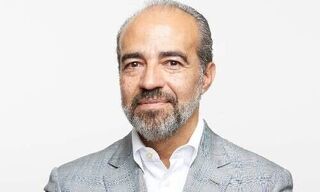How do bankers broach the sensitive subject of succession planning and navigate the tricky situation of «retired but active» CEOs in Asia? finews.asia spoke with Lee Woon Shiu who recently joined DBS Private Bank, in an exclusive interview.
Lee Woon Shiu, why is succession planning such a touchy subject in Asia?
Asian families are traditionally averse to discussing issues of death and incapacitation. Whilst part and parcel of conversations around succession planning, these topics are typically frowned upon as they are perceived to be «inauspicious» and bad luck for the family. There’s also a conventional tendency for the next-gen to defer to the authority (i.e. the patriarch/founder), so as not to be seen as vying for the leadership role.
When the retired CEO or chairman is not really retired, does it cause problems for the second generation who are handed the reins?
It’ll create tension and uncertainty in the family business, as the management team would be unsure whether to follow the new leader’s directive or second-guess the real wishes of the de facto retired CEO/Chairman.
«As much as 56 percent of a family business enterprise’s value could be lost in the leadup to the handover»
This is further compounded if the second-gen is merely given the leadership role without having a significant shareholding in the family business, as this could give rise to opportunities for other second-gen family members to wrangle control of company ownership and stage a leadership coup d’etat.
Does overstaying at the company helm become a problem for bankers and future investors of the family-run business?
Delaying effective relinquishment of control till the patriarch is frail often leaves him or her in a disadvantageous position – it’s hard to impose binding rules of engagement on the next-gen at a time when jostling for power and control intensifies.
This can spark uncertainty for investors, resulting in an adverse impact on the valuation of the family business. According to research by Finance Professor Joseph Fan, as much as 56 percent of a family business enterprise’s value could be lost in the leadup to the handover.
Taking these into consideration, we strongly advise aligning leadership succession and share ownership with voting control to the fullest extent possible. The second-gen taking over the reins should be given sufficient shareholding control to be able to drive the family business under its new vision, whilst the retired Chairman could be granted additional non-voting preference shares to ensure a continued share in the business’ economic benefits.
«It is common for daughters to take over the business»
Should there be residual concerns over the second-gen in the short term, the retired CEO or Chairman could be given «golden shares» – designed as a separate class of shares, these don’t allow oversight of day-to-day management matters but provide holders with weighted voting rights, enabling them to exercise veto rights over certain fundamental decisions (e.g. divestment of key enterprise assets, changes to articles of association).
How are bankers approaching the subject of succession planning, besides using philanthropy as a means of broaching the subject?
Bankers are engaging families across a broad spectrum of issues closely associated with succession planning, including tax planning, immigration and risk management. High-Net-Worth families are generally more inclined to engage in such discussions in light of several key macro regulatory and tax regime changes (e.g. automatic exchange of offshore account details under Common Reporting Standards), as well as the increasing complexity of Asian family demographics as family members relocate to different parts of the world after graduation or marriage.
«This is especially so as women today are more confident»
Once the families are aware of the key considerations and planning tools involved in addressing these needs, pursuing a full-fledged succession plan becomes a natural next step and an option that families may be more inclined to explore.
Is handing over businesses to daughters, especially in Asia, still taboo in recent years?
This depends on the nature of the family business. It is increasingly common for daughters to take over the business in industries that are adapting to evolving macro business trends, particularly in the areas of sustainability and innovation. This is especially so as women today are more confident, assertive and open in demonstrating their desire and ability to lead the family business. We see this trend playing out amongst our clients as well.
When the patriarch hands over the reins of the business to two sons or siblings, and should they disagree after the patriarch passes on, what are the usual procedures in resolving these potential issues?
This depends on the rules of engagement relating to family governance, as set out in the Family Constitution/Bye-laws of the family business, and varies from case to case.
«Any disagreement should be swiftly resolved with reference to the rules of engagement»
Ideally, if the family members are on good terms, any disagreement should be swiftly resolved with reference to these rules of engagement. However, in the event that one sibling refuses to abide by the Family Constitution, the next recourse would be an appeal to a higher authority.
This can take the form of a submission to a properly constituted family council comprising a representative group of senior family members, or by deferring to a family-appointed mediator or arbitrator whose decision the family must accept as binding.
Lee Woon Shiu is Managing Director and the Regional Head of Wealth Planning, Family Office and Insurance Solutions at DBS Private Bank. Before joining the firm in March this year, Lee was Managing Director & Head of Wealth Planning Trust & Insurance at Bank of Singapore for nine years.


























